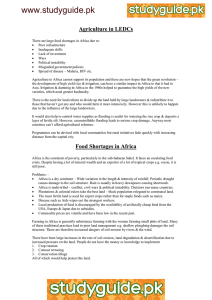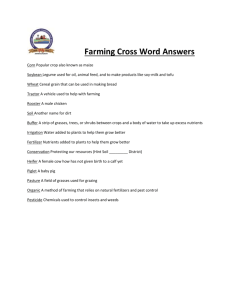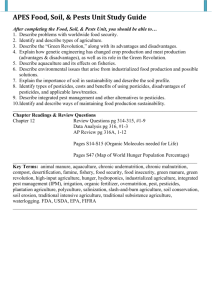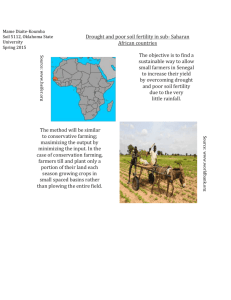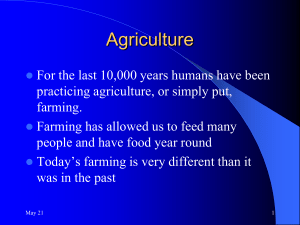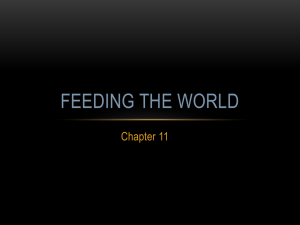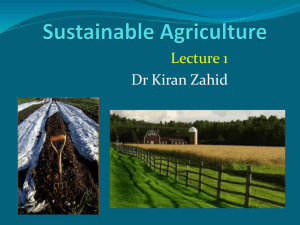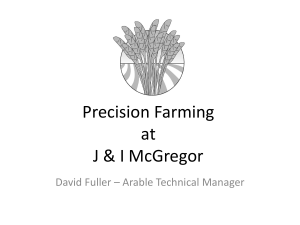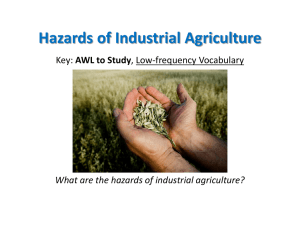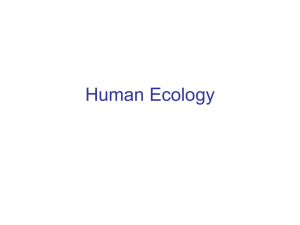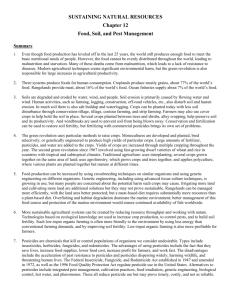Chapter 9 Food
advertisement
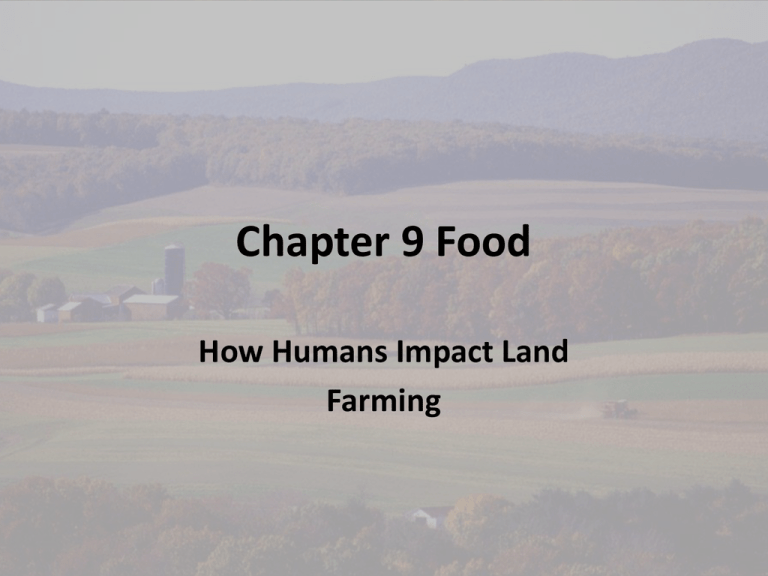
Chapter 9 Food How Humans Impact Land Farming Why People Go Hungry Starvation Lack of calories/ people usually die from disease Malnutrition Lack of an essential nutrient in diet such as protein 1 in 3 people in world are malnourished 20,000 people die every day Why People Go Hungry? There is enough food for everyone in the world but what is the problem? 1. Political troubles- civil war, food stolen 2. Transportation- lack infrastructure or food distribution network Roads and rail lines broken and need repair 3. Droughts – periods rainfall less than average 4. Famines – food shortage that lasts a long time and causes malnutrition in people Agriculture and Soil Chapter 9.2 • • • • Describe fertile soil Describe methods to prevent soil erosion Describe desertification Compare low input and conventional farming Fertile soil- soil that can support rapid growth of healthy plants Soil erosion- wearing away of topsoil by wind and water. Desertification- fertile soil is lost and land becomes desert-like Low in put farming- farming without a lot of energy, pesticides, fertilizer, and water Conventional farming- farming with a lot of energy, pesticides, fertilizer, and water Conventional Not sustainable Low Input Sustainable Uses lots of : Water Fuel Pesticides Fertilizers Uses less: Water Fuel Pesticides Fertilizers Pivot irrigation Drip irrigation mulch pesticides Was there ever a time in U.S. when people were starving? Yes- !930s Dust Bowl or Dirty Thirties • Severe drought and windstorm covered midwest states during 1930s • Deep plowing of virgin topsoil of Great Plains • Removed native, deep-rooted grasses that trapped soil • No plants covering ground plus a major drought and windstorm http://www.history.com/topics/dust-bowl The Dust Bowl After the Dust Bowl • Began age of modern farming • Methods to prevent erosion and conserve soil 1. contour plowing- plowing along contour of land, across the slope 2. No-till farming- seeds of new crop are planted into slits cut into previous crop 3. Crop rotation-growing different kinds of crops in succession on the same land 4. Biological Pest Control also called Integrated Pest Management (IPM)- control pests with beneficial insects
